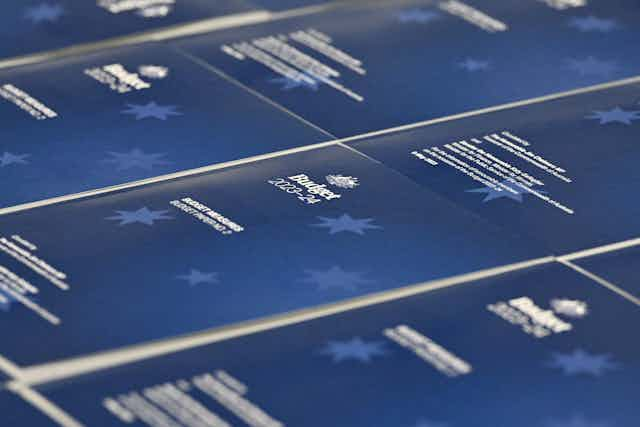A $14.6 billion four-year cost-of-living package will be the centrepiece of Labor’s second budget, which seeks to balance spending restraint with its election commitment to not leave people behind.
The latter days of preparing the budget – which was printed at the weekend – have seen mounting pressure, including from outspoken members of the Labor caucus, for greater help for the disadvantaged.
A strong revenue flow, including from a pick-up in wages, appears to have made it possible for the government to do somewhat more on welfare payments than it originally intended.
There was speculation at the weekend, which the government refused to confirm or deny, of a possible modest across-the-board rise in JobSeeker. Earlier, the JobSeeker assistance was expected to be confined to those 55 and over.
At the same time the budget is tipped to see a surplus this financial year, although Treasurer Jim Chalmers constantly stresses the pressure it will be under in later years.
The government says its cost-of-living plan, which includes already flagged relief on power bills and cheaper medicines, will not be inflationary but will directly lower price pressures and the CPI in 2023-24.
On Sunday Chalmers, who did a round of media interviews, said more than five million households would get help with their electricity bills, as would about a million small businesses.
Asked the maximum price relief on energy bills, Chalmers said, “people will be getting several hundred dollars if they’re on pensions and payments or a small business.”
The government has struck deals with states and territories and the relief will vary in different parts of the country.
There will also be investments in energy efficiency.
About 40% of the upgrade in revenue comes from strong employment growth and a pick-up in wages growth. Some 20% is from higher commodity prices, and the rest comes from other sources including higher company profits in the non-mining and finance sectors.
The Treasurer said the budget would be “in the best Labor tradition – help for the vulnerable with cost-of-living pressures, an eye on the future, and responsible economic management”. It would have substantial savings, substantial spending restraint, and “modest but meaningful tax changes”.
Among the tax changes will be an extension of the petroleum resource rent tax that will mean the offshore LNG industry pays more tax, earlier. Deductions will be limited under the changes. This will increase receipts by $2.4 billion over the forward estimates.
The Australian Petroleum & Exploration Association reacted benignly.
APPEA chief executive Samantha McCulloch said: “The changes aim to get the balance right between the undeniable need for a strong gas sector to support reliable electricity and domestic manufacturing for decades to come and the need for a more sustainable budget”. She said the announcement would “provide greater certainty” for the industry.
Meanwhile Opposition Leader Peter Dutton faces fresh pressure with another byelection looming, following the weekend announcement by former minister Stuart Robert that he will quit parliament soon.
Robert, who is shadow assistant treasurer, holds the Gold Coast seat of Fadden. He said he wanted to spend more time with his family.
Robert has suffered some bad publicity relating to various controversies, and was one of the ministers with oversight of Robodebt, on which a royal commission report will come down mid year. He admitted to the commission his serious doubts about the scheme – which was found to be illegal – but argued he had to defend it because of cabinet solidarity,
Read more: Government to spend $11.3 billion over four years to fund 15% pay rise for aged care workers
Though spooked by the loss of the Victorian seat of Aston at a byelection, the Liberals would be confident of holding Fadden, which is on a margin of more than 10%. Queensland is a strong state for the Coalition and Dutton’s home state.
Nevertheless Dutton at the weekend stressed the importance of getting a local as the Fadden candidate. One – though not the main – factor in the Aston loss was that the Liberal candidate came from another part of Melbourne.
“We’ll preselect somebody who understands that part of the Gold Coast, and we should be in that seat, frankly, preselecting somebody who can be a future cabinet minister or a leader of our party. So, we will work hard with the LNP in Queensland to make sure that we do win,” Dutton said.
There is also an expectation that former prime minister Scott Morrison will resign from parliament before long.

